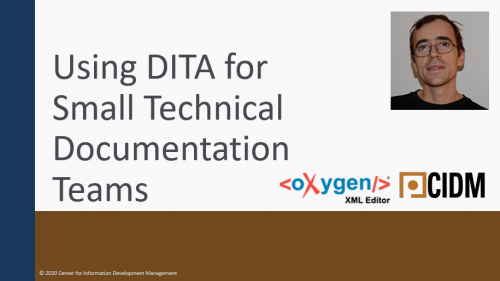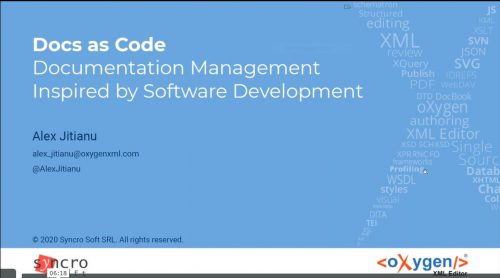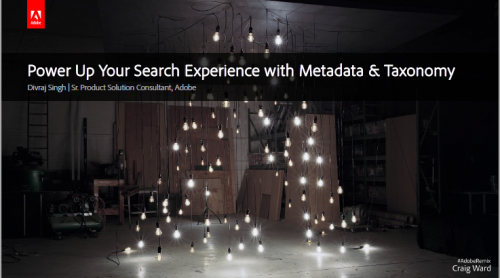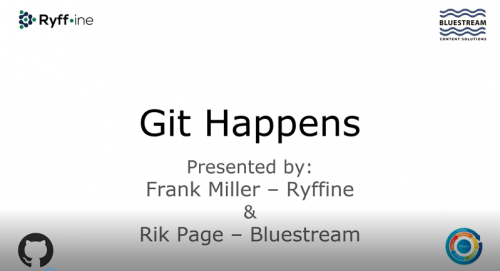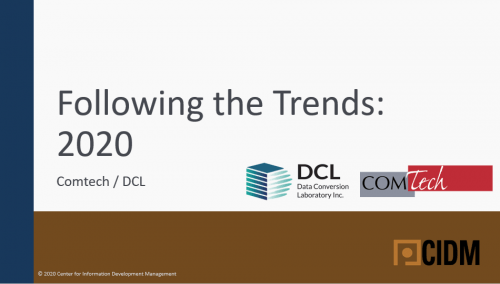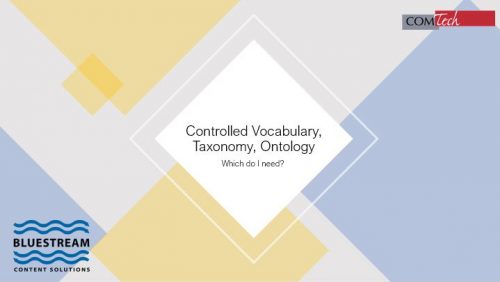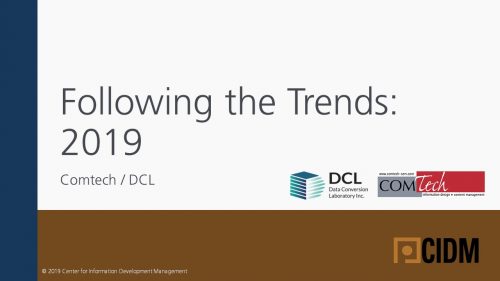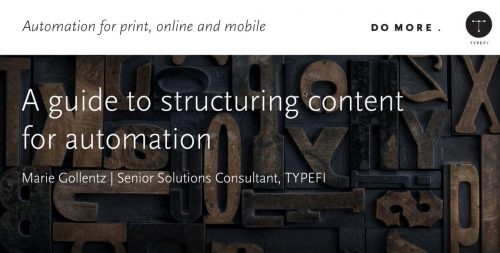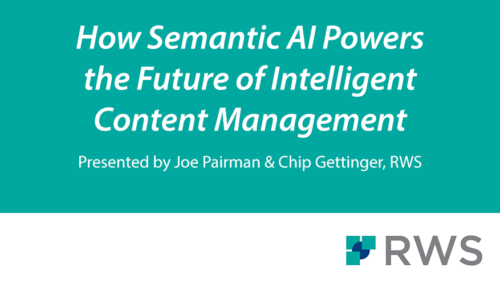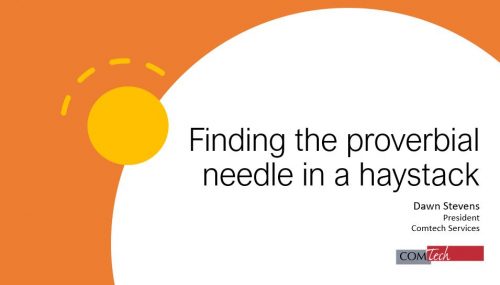-
April 1, 2020 Implementing DITA with a small team of technical writers does not have to be expensive or difficult to set up. We'll go through the steps of implementing a DITA solution using GitHub for storage and workflow and Oxygen XML Editor for editing. We'll also look into how you can automate publishing and receive feedback from your end users. As a practical example we'll look into how editing, collaboration and publishing on the Oxygen XML Blog works. Presented by: Radu Coravu started working more than 10 years ago as a software developer for Syncro Soft SRL, the manufacturer of the popular oXygen XML Editor. During the last years, his main focus has been in the development of the visual XML Author editing environment and the specific-DITA support provided by oXygen. He provides support for complex integrations and helps steer the product in the right direction, all this with some development on the side.
-
September 16, 2020 Tools and techniques used in software development can also be applied for documentation management:
- Storage and issue management using GitHub
- Automated quality checks and continuous publishing using Netlify
- Editing and collaboration support
- Release strategies
-
July 21, 2021 With this webinar, we are pleased to announce the release of the first-ever e-learning course to train technical writers and subject matter experts on the use of Simplified Technical English (STE), the global standard for writing clear and concise content. Most of the world’s leading companies have accelerated their digital transformation efforts during the pandemic—efforts that are not slowing down. Content plays a key role in digitalization, as it has an important impact on the customer experience, where good quality content will help grow and create new business and service models and ensure safe product use. Because of this key role, it is important that global writing teams learn how to write content that is accurate, clear, aligned, and easy to find by their customers. Through STE companies can maximize the value of their enterprise content, whether this is for technical documentation, marketing, or support. Technical writers will be able to further improve their skills and show industry credibility through an e-learning course, which one could do at any time and from any location. During this webinar, participants will learn more about STE, the values it brings, and how this e-learning course will help you create the best possible content. Presented by: Berry Braster has been in the technical documentation field for over 18 years and has helped implement content strategies, including the use of DITA and HyperSTE controlled language software. As Technology Director, Berry is involved with connecting technical documentation to IoT, and how to leverage on technologies like Augmented and Virtual Reality.
-
May 13, 2020 There is an explosion of content today. But what makes your content stand out is – relevance and searchability. To ensure that customers don’t have to spend hours searching through your content, metadata is key. And to know what metadata to add while authoring, a well-established taxonomy is key. To design a truly best-in-class content search experience metadata and taxonomy need to work in tandem. In this webinar we will showcase:
- How to leverage metadata to make your content searchable
- What is the difference between good and bad taxonomies
- A live example of taxonomy development using Adobe Experience Manager
-
June 16, 2020 Unlike a decade ago, organizations face few barriers to entry if they want to develop structured content in a DITA-based ecosystem. The increasing adoption of Git as a content platform, and the maturing of DITA-focused products like oXygen have removed many of the cost barriers to implementing DITA in an elegant and scalable way. Whether a stop on a longer-term transition to a CCMS or the final destination, a mostly open-source DITA tool chain can be a valuable proving ground for a sophisticated content strategy. In this presentation, you’ll learn how process, information design, scalable repository design, and smart use of oXygen and Git can be more than a short-term solution. You will also learn where Git falls short and when you should be using a DITA CCMS. Presented by: Frank Miller president/ founder of Ryffine is an industry thought-leader whose career has focused on leading enterprise client engagements and building an information development community, Frank has been involved in dozens of successful DITA implementations. In addition to partnering with many leading names in the information development and content management spaces, Frank enjoys sharing his insights on trends and facilitating the adoption of best practices throughout the community. Presented by: Rik Page is EMEA Sales and Marketing Director at Bluestream Software and has been working with both component content and document management solutions since 200. During this time, he has worked with custom DTDs and Schemas, S1000D, iSpec2200 and since 2005 DITA. Rik's practical experience ranges from data capture/content creation through to dynamic multichannel delivery. This has been achieved in a wide range of industries including banking and finance, manufacturing, central government, and education. A keen advocate of technology and innovation Rik has taken part in multiple consultancy projects and helped formulate solutions all over the world.
-
May 12, 2020 In its eighth year of collecting data, the Center for Information-Development Management (CIDM) and Data Conversion Laboratory (DCL) asked managers, information architects, writers, training developers, and more how they are addressing the challenges of meeting customer information needs. During the webinar we walk through the results of the 2020 Trends Survey, a study we have been conducting since 2012. We trace the changes in how we think about developing and delivering content. Learn how others in the information-development community are planning to respond to new customer demands for innovative approaches to development and delivery. Presented by: Dawn Stevens, President, Comtech Services and Director of CIDM has 28 years of practical experience in virtually every role within a documentation and training department, including project management, instructional design, writing, editing, and multimedia programming. Dawn is the perfect advisor to identify and remove the challenges you face in producing usable, technical information and training content. With both engineering and technical communication degrees, Dawn combines her solid technical foundation with strong writing and design skills to lead our team of consultants and specialists in providing the expertise you need. Mark Gross, President, Data Conversion Laboratory, is a recognized authority on XML implementation and document conversion. Mark also serves as Project Executive, with overall responsibility for resource management and planning. Prior to joining DCL in 1981, Mark was with the consulting practice of Arthur Young & Co. Mark has a BS in Engineering from Columbia University and an MBA from New York University. He has also taught at the New York University Graduate School of Business, the New School, and Pace University. He is a frequent speaker on the topic of automated conversions to XML and SGML.
-
March 9, 2021 Ironically, the terms utilized to describe a vocabulary of words used to organize and catalog information within a content corpus often are used inconsistently or interchangeably. However, each term represents a point, on an increasing scale of complexity and resulting data richness and applicability. In this two-part webinar, Dawn Stevens of Comtech Services defines key points along this scale, comparing and contrasting the scope and domain to which each term applies, suggesting when each might be used, and recommending the processes for creating it. Dawn is joined by Rik Page of Bluestream, who will demonstrate real-life examples of each in use. Participants will gain clarity about the approach required to make content more accessible for their users. View part 2 of this webinar here. Presented by: Dawn Stevens is the President, and owner of Comtech Services and the Director of the Center for Information-Development Management. With over 25 years of experience, including 20 years at Comtech, Dawn has practical experience in virtually every role within a documentation and training department, including project management, instructional design, writing, editing, and multimedia programming. With both engineering and technical communication degrees, Dawn combines a solid technical foundation with strong writing and design skills to identify and remove the challenges her clients face in producing usable, technical information and training. Rik Page is Sales and Marketing Director at Bluestream Software and has been working with both component content and document management solutions since 2001. During this time, he has worked with custom DTDs and Schemas, S1000D, iSpec2200 and since 2005 DITA. His practical experience ranges from data capture/content creation through to dynamic multichannel delivery, achieved in a wide range of industries including banking and finance, manufacturing, central government and education. A keen advocate of technology and innovation Rik has taken part in multiple consultancy projects and helped formulate solutions all over the world. Away from the office Rik is a Scout Leader working with young people and helping them to develop new skills whilst having fun.
-
April 30, 2019 Consumers have more avenues than ever before to find the content they need. Are you trying to decipher how content trends are impacting your business? Do you need to respond to a rapidly changing digital marketplace? Join us to discover how changing content development and delivery requirements are affecting your business today. Learn how others in the information-development community are planning to respond to new customer demands for innovative approaches to development and delivery. In its seventh year of collecting data, the Center for Information-Development Management (CIDM) and Data Conversion Laboratory (DCL) asked managers, information architects, writers, training developers, and more how they are addressing the challenges of meeting customer information needs. During the webinar we walk through the results of the 2019 Trends Survey, a study we have been conducting since 2012. We trace the changes in how we think about developing and delivering content. Presented by: Dawn Stevens, President, Comtech Services and Director of CIDM has 28 years of practical experience in virtually every role within a documentation and training department, including project management, instructional design, writing, editing, and multimedia programming. Dawn is the perfect advisor to identify and remove the challenges you face in producing usable, technical information and training content. With both engineering and technical communication degrees, Dawn combines her solid technical foundation with strong writing and design skills to lead our team of consultants and specialists in providing the expertise you need. Mark Gross, President, Data Conversion Laboratory, is a recognized authority on XML implementation and document conversion. Mark also serves as Project Executive, with overall responsibility for resource management and planning. Prior to joining DCL in 1981, Mark was with the consulting practice of Arthur Young & Co. Mark has a BS in Engineering from Columbia University and an MBA from New York University. He has also taught at the New York University Graduate School of Business, the New School, and Pace University. He is a frequent speaker on the topic of automated conversions to XML and SGML.
-
September 9, 2020 This is a presentation that provides an intersection between content and design. It is a high-level practical guide to analyzing your content, deciding what you want to do with it, developing style naming conventions, and developing editorial style guides, design style guides, and style templates. Once you get to that stage, you can then consider how content management systems, automation, and xml might fit into your publishing processes. Presented by: Marie Gollentz is a Senior Solutions Consultant focusing on the European market. Prior to joining Typefi, she held a number of positions in the publishing industry in London, including at the publisher of Research Fortnight and the London School of Business and Finance. Marie holds a Masters degree in European Political Sciences from the Autonomous University of Barcelona and a Bachelor’s degree in Political Sciences from Sciences Po Strasbourg. She is trilingual in English, French and Spanish.
-
August 10, 2020 Content developers and managers worldwide are coming together to share ideas and inspire each other at ConVEx in September. When first announced, we said ConVEx is not an online simulation of an in-person conference, but an immersive experience designed from the ground up to use our e-resources in the best possible way to bring you a wealth of ideas and information to support your efforts in defining and executing a comprehensive content strategy. During this Webinar, Dawn Stevens explains what we mean by this statement and what you can expect and gain from this new event format. We'll discuss the event format, the technology we'll use, and highlight the many networking activities provided. By the end of the Webinar, you'll know why you should attend ConVEx — it's an opportunity to have a positive experience, converge with others in the industry, focus your attention on industry issues, and magnify your value to your organization. Presented by: Dawn Stevens, President, Comtech Services and Director of CIDM has 28 years of practical experience in virtually every role within a documentation and training department, including project management, instructional design, writing, editing, and multimedia programming. Dawn is the perfect advisor to identify and remove the challenges you face in producing usable, technical information and training content. With both engineering and technical communication degrees, Dawn combines her solid technical foundation with strong writing and design skills to lead our team of consultants and specialists in providing the expertise you need.
-
October 20, 2021 Semantics add unique benefits for content, especially within organizations utilizing structured content. Whether content is for detailed product documentation, polished marketing materials, or accurate, insightful employee enablement, all audiences gain by quickly finding what they want. While improving findability is key, providing accurate information recommendations dramatically increases relevancy with minimal use of personal data. From pages to personal assistants, reuse metrics to insights, content that connects to core semantics—the real-world ideas and objects it refers to—becomes truly intelligent. But, of course, benefits like this don't come from just pushing a button—or can they? During this webinar, Joe and Chip will discuss that while machine learning is a good start, it may not give customers the full value, clarity, or futureproofing required. So we challenged ourselves to productize a semantic AI approach that drives a polished end-user experience—and also appeals to busy editorial teams who care about quality but need to beat deadlines. We'll also examine emerging best practices for the practical adoption of semantic AI within your organization. Learn how RWS built a layered solution for Tridion, combining it with the power of semantic AI. These innovations fuse a powerful partnership of Tridion for content management excellence with PoolParty for taxonomy management. The results provide content teams with the power, automation, and accuracy of modern semantics with human validation. Presented by: Chip Gettinger is VP Global Solutions Consulting at RWS, managing a team that works with customers in maximizing global content with RWS. He has experience working with customers to develop global content strategies, business ROI adoption drivers, change management, and technology adoption for component content management systems. He speaks and blogs about customer successes working closely with industry standards, partners, and customers in technology solutions and deployments. Joe Pairman is Senior Product Manager, Tridion Docs. By looking at customers' underlying needs, and recognizing technical opportunities, he has built truly innovative solutions with strategic value. Joe designed and led the development of a personalized guidance app that helped millions of users without requiring any of their data. He also integrated a knowledge model with granular structured content to automatically give data integrators a broad overview of their available implementation options and next actions. Most recently, Joe brings the power of his first B2B product love –Tridion Docs – to a whole new market and user sector of smart specialists who don't have time to learn structured authoring. Product work is more than just building features – it's bringing people together to shape vision, plans, and priorities across the whole software lifecycle, in a way that keeps the original value when the ground situation inevitably changes. Joe has learned to get things done with solid, secure, engineering without losing track of the path to greater customer value.
-
August 26, 2021 With the plethora of content available to users today, it’s often a wonder that they are able to find any relevant information to their queries. In fact, it’s the most common complaint Comtech hears when conducting user studies for our clients: “I can’t find what I’m looking for in a reasonable amount of time.” What can we as technical writers do to address that complaint? We hear a lot about taxonomies and metadata and their potential influence in making our content more findable. However, Google uses over 200 ranking factors in its search algorithm that go well beyond this basic categorization. Surprisingly, a significant number of these ranking factors fall clearly within the realm of a technical writer’s responsibilities. In this rapid fire webinar, Dawn presents dozens of proven and speculative factors that you as a technical writer can address to optimize your content for findability. Presented by: Dawn Stevens is the President, and owner of Comtech Services and the Director of the Center for Information-Development Management. With over 32 years of experience, including 20 years at Comtech, Dawn has practical experience in virtually every role within a documentation and training department, including project management, instructional design, writing, editing, and multimedia programming. With both engineering and technical communication degrees, Dawn combines a solid technical foundation with strong writing and design skills to identify and remove the challenges her clients face in producing usable, technical information and training.

